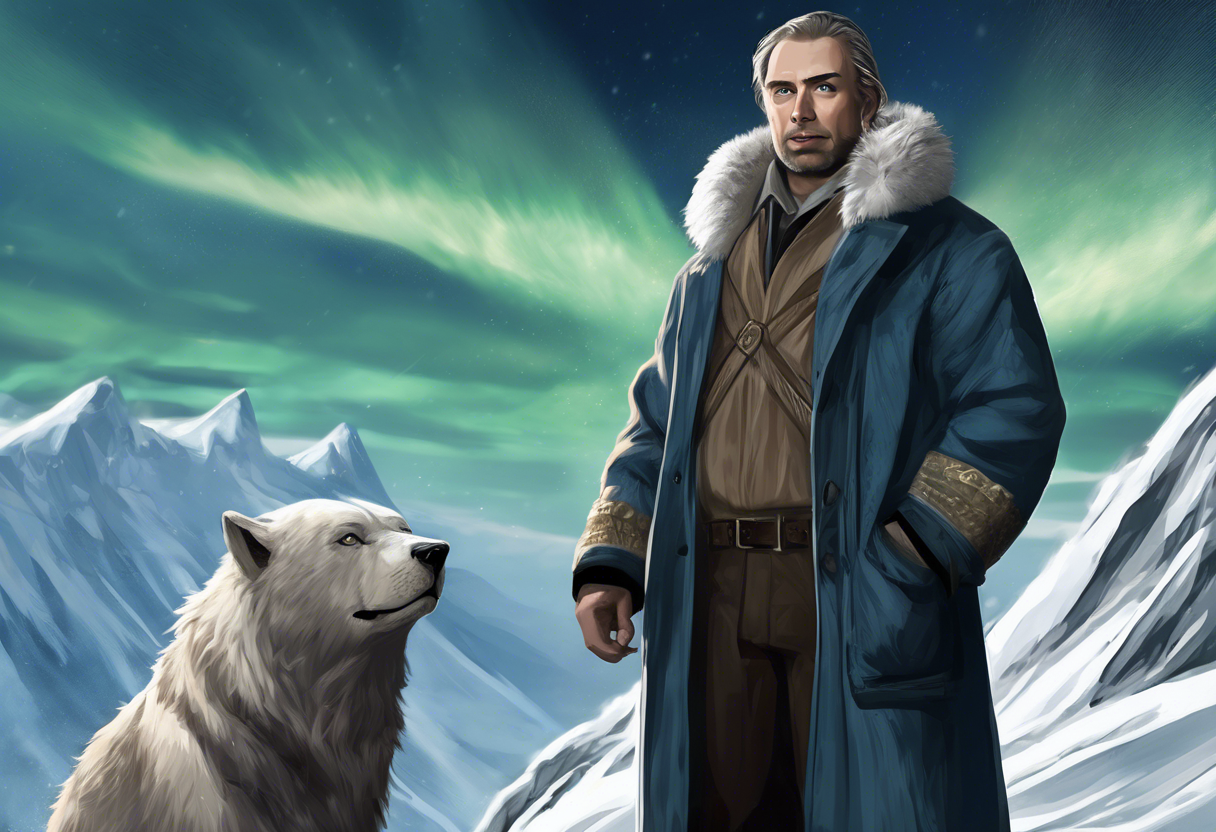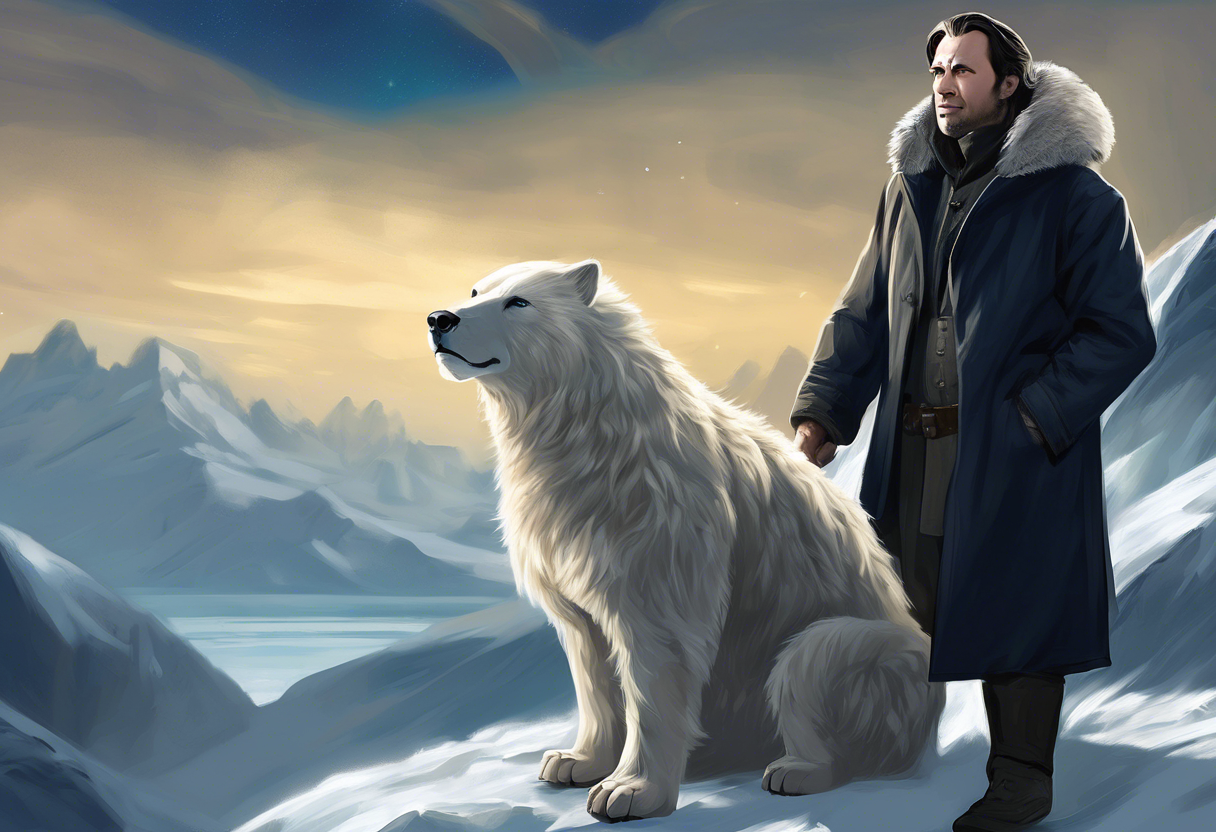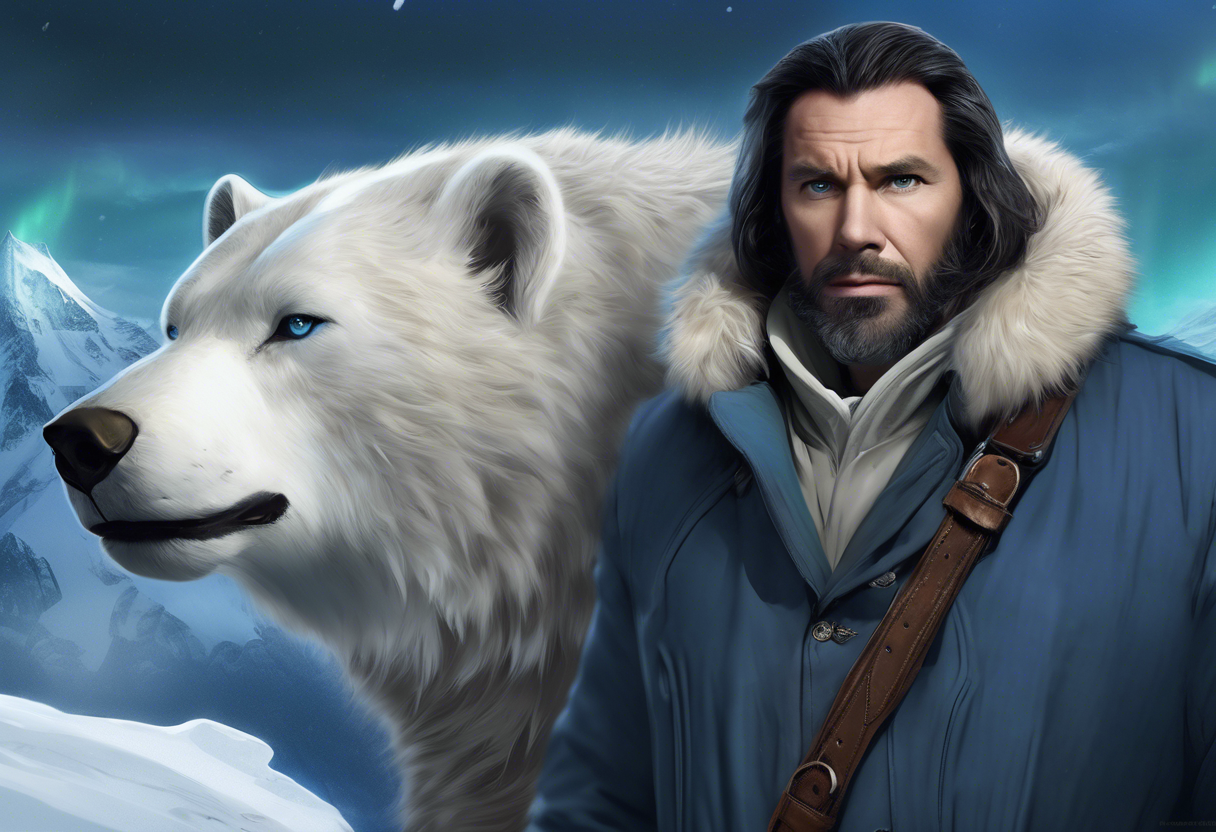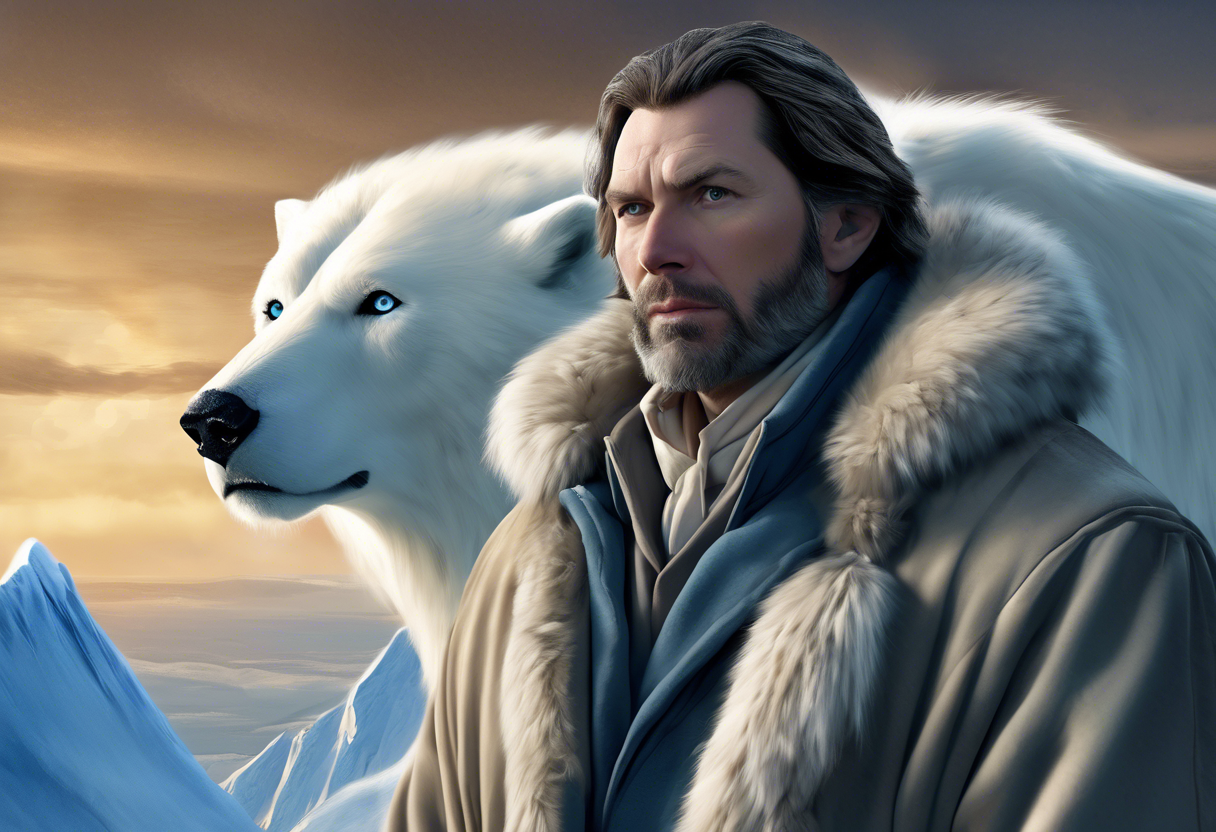Lord Asriel: A Comprehensive Character Study from The Golden Compass
Contents
Introduction
Lord Asriel is one of the most compelling and complex characters in Philip Pullman’s The Golden Compass, the first book in the His Dark Materials trilogy. Introduced as a commanding and enigmatic aristocrat, Asriel is initially presented as Lyra Belacqua’s uncle but is later revealed to be her father. He is a tall, imposing figure—both physically and intellectually—and a renowned explorer and scholar obsessed with understanding Dust, a mysterious particle linked to consciousness and knowledge. His pursuits are at odds with the dominant religious authority known as the Magisterium, making him a controversial and somewhat subversive figure within the narrative’s world.
Asriel embodies traits of ambition, intensity, and moral ambiguity, positioning him as an anti-hero whose actions drive much of the trilogy’s overarching conflict. His quest for knowledge and power aligns with broader literary traditions of the tragic hero and the Promethean figure—those who defy divine authority to enlighten humanity, often at great personal cost. As a pivotal character, his relationship with Lyra deeply influences her development and the unfolding of the narrative’s grand themes concerning authority, freedom, and the nature of the soul %[1][2][3][4]%.
Role in the Story
Lord Asriel’s storyline is essential to the progression of The Golden Compass and the entire His Dark Materials trilogy. Initially, he is a distant and austere figure, expecting obedience from Lyra and those around him but rarely receiving it. He secures a grant to lead an expedition to the North, where he aims to uncover the origins and true nature of Dust, which the Magisterium deems heretical. Despite his aristocratic status, Asriel is running low on resources and allies, increasing the stakes of his journey.
Asriel’s major decisions include:
- Secretly fathering Lyra with Marisa Coulter, a woman whose morally complex nature mirrors his own.
- Orchestrating events that challenge religious orthodoxy, directly opposing the powerful Magisterium.
- Committing morally questionable acts, such as the killing of Roger Parslow, to advance his goals and build a bridge to parallel universes.
- Leading an eventual rebellion against the authoritarian celestial powers that govern the worlds.
His relationships are complicated: he is cold and authoritarian with Lyra, yet their bond profoundly shapes her identity; he is both an ally and foil to Mrs. Coulter, sharing ambitions but differing in methods and ethics. Crucially, Asriel’s actions set in motion the confrontation between human freedom and cosmic authority that defines the trilogy’s climax %[1][2][4][5]%.
Character Analysis
Lord Asriel is marked by a powerful blend of determination, intelligence, and emotional distance. His personality is strict, commanding, and often intimidating, expecting unwavering loyalty from those around him. However, beneath this stern exterior lies a deeply ambitious man driven by a thirst for knowledge and a desire to challenge the established order.
Motivations: Asriel’s primary motivation is his quest to understand and manipulate Dust, which he believes is key to human consciousness and greater cosmic truths. This ambition causes him to reject traditional morality and religious dogma, positioning him as a rebel against divine authority.
Strengths: Asriel’s intelligence, political savvy, and unwavering willpower make him a formidable figure. His charisma and leadership enable him to rally others, even when his methods are ruthless.
Flaws: His impatience, moral ambiguity, and coldness create significant personal and ethical conflicts. His willingness to sacrifice others, including children, for his goals marks him as a controversial and sometimes tragic figure.
Development: Throughout The Golden Compass and subsequent books, Asriel evolves from a distant, almost mythic figure to one whose vulnerabilities and ambitions become clearer, thereby enriching his role as both antagonist and mentor. His complexity invites readers to grapple with questions about the costs of progress, the nature of power, and the ethics of rebellion %[1][2][3][4]%.
Themes and Symbolism
Lord Asriel embodies several central themes in The Golden Compass:
- Rebellion Against Authority: Asriel’s defiance of the Magisterium symbolizes the human struggle for intellectual freedom and self-determination against oppressive religious and political powers.
- The Pursuit of Knowledge: His quest for Dust represents a broader human desire to uncover hidden truths about existence, consciousness, and the universe.
- Moral Ambiguity: Asriel’s readiness to use questionable means for a supposedly noble end explores the complexities of ethics when confronting cosmic or societal authority.
- Parental Influence and Identity: His relationship with Lyra highlights themes of family, identity, and the personal cost of great ambitions.
Symbolically, Asriel aligns with the archetype of the Promethean hero—one who steals knowledge from the gods to empower humanity but suffers for it. His scientific and spiritual pursuits challenge orthodox beliefs, framing him as a catalyst for change and the embodiment of intellectual courage % [2][4]%.
Cultural Impact
Lord Asriel has had a significant cultural impact since the publication of The Golden Compass. He is often cited as a memorable anti-hero who defies simple categorization, captivating readers with his enigmatic and morally complex nature.
In various adaptations, including the 2007 film and the BBC/HBO television series His Dark Materials, Asriel has been portrayed by actors who emphasize his imposing presence and complex motivations, contributing to his iconic status among fans. His character has inspired discussions about the portrayal of authority figures who blur the lines between heroism and villainy in young adult literature.
Fans appreciate Asriel’s depth and the way his character challenges conventional tropes, making him a subject of analysis in literary circles and fan communities alike [1][2][5].
Critical Reception
Critics have largely praised Lord Asriel for adding intellectual and emotional depth to The Golden Compass. Many commend his role as an anti-hero who enriches the narrative’s exploration of power, knowledge, and rebellion. His morally ambiguous actions, such as the killing of Roger Parslow to achieve his goals, have sparked debate, with some viewing him as a necessary force of change and others as a cautionary figure about unchecked ambition.
Some controversy surrounds his harsh treatment of Lyra and the ethical questions raised by his willingness to sacrifice others, which complicates readers’ sympathies but also adds realism and complexity to the story. His characterization has been analyzed for its reflection of historical and literary figures who challenge established authority at great personal cost [2][4][5].
Legacy
Lord Asriel’s enduring appeal lies in his embodiment of the tension between authority and rebellion, knowledge and morality. His role in The Golden Compass continues to resonate in contemporary debates about science, religion, and individual freedom. Through him, Pullman invites readers to consider the costs of challenging entrenched systems and the ambiguities inherent in the quest for truth.
Asriel’s archetype has influenced later works in fantasy and young adult fiction, inspiring characters who share his blend of charisma, intellectual ambition, and ethical complexity. His legacy is that of a powerful anti-hero who fundamentally shapes the narrative arc of His Dark Materials and remains a touchstone for discussions about the intersection of power, knowledge, and identity in literature %[1][2][3][4][5]%.
References
- https://www.charactour.com/hub/characters/view/Lord-Asriel.The-Golden-Compass
- https://www.shmoop.com/study-guides/golden-compass/lord-asriel.html
- https://bookbrief.io/books/the-golden-compass-philip-pullman/character-analysis
- https://www.litcharts.com/lit/the-golden-compass/characters/lord-asriel
- https://www.sparknotes.com/lit/hisdarkmaterials/characters/







